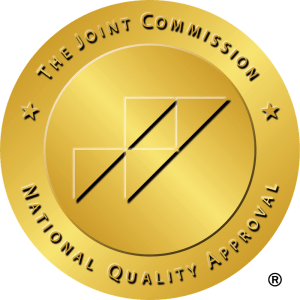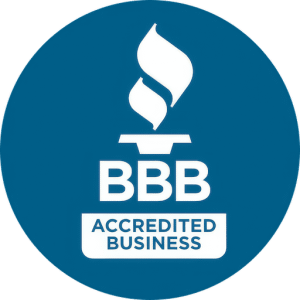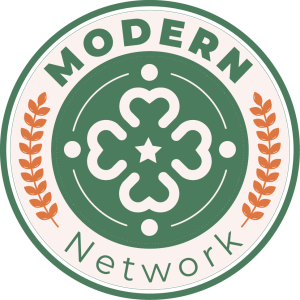We Accept Insurance
Find relief in a safe, understanding environment
Use proven therapies to break the cycle of OCD
Build lasting skills for a calmer, more confident future
You see your child stuck in a painful loop. It starts with an intrusive thought, builds to anxiety, and finds temporary relief in a compulsive ritual. This is the cycle of obsessive-compulsive disorder (OCD), which can silently disrupt a teen’s life. While the rituals may seem to help, they actually strengthen OCD’s grip. But the cycle can be broken. With our specialized treatment, your teen can find freedom.
What does OCD look like in a teenager?
You may be noticing behaviors in your teen that seem illogical or excessive, but to them, these actions feel absolutely necessary. OCD has two distinct parts: obsessions (distressing, intrusive thoughts, images, or urges) and compulsions (rituals performed to relieve the distress). Often, parents see only the compulsion, but understanding the underlying obsession is key.
Common obsessions
- Fear of contamination: Persistent worry about germs, dirt, or getting sick from “unclean” surfaces.
- Need for order and symmetry: A powerful urge for things to be perfectly aligned or even.
- Intrusive “bad” thoughts: Unwanted and disturbing thoughts related to violence, religion, or hurting someone.
- Fear of losing control: Constant worry about acting on an unwanted and inappropriate impulse.
- Perfectionism and doubting: An overwhelming fear of making a mistake and constant need for reassurance that they haven’t done something wrong.
Common compulsions
- Washing and cleaning rituals: Excessive handwashing, showering, or cleaning.
- Checking: Repeatedly checking that doors are locked, appliances are off, or homework assignments have no mistakes.
- Counting, tapping, or ordering: A need to count to a specific number, tap a certain way, or arrange objects meticulously to reduce anxiety.
- Hoarding: Refusing to discard useless items (like old papers or wrappers) due to a fear that something bad will happen if they are thrown away.
- Mental rituals: Silently repeating a word or prayer, or trying to “cancel” a bad thought with a good one.
Where Hope Lives
A safe harbor for healing
In a world that feels overwhelming, your teen deserves a place where they won’t get lost in the crowd. At our intimate, homelike settings in Arizona (Apache Junction, Fountain Hills) and Idaho (Boise), we ensure your child is seen as an individual. Our specialized team creates personalized depression treatment plans in a compassionate, LGBTQ+-affirming environment. Here, healing isn’t one-size-fits-all; it’s a personal journey built on understanding, respect, and dedicated support.
Understanding the roots of OCD
If your teen is struggling with OCD, you’re probably asking, “Why?” OCD is a complex neurobiological condition—it’s not your or your teen’s fault. While there’s no single cause, researchers believe OCD stems from a perfect storm of factors.
For many teens, the foundation of OCD is biological.
- Family history: OCD or other anxiety disorders in the family may mean a genetic predisposition.
- Brain function: The brain’s use of chemicals like serotonin can play a significant role.
However, for teens already predisposed, certain experiences can trigger or worsen symptoms.
- Traumatic events: Stress or trauma can sometimes prompt obsessive thoughts and coping rituals.
- Learned responses: A teen can learn that a ritual temporarily eases anxiety, which creates a powerful, learned cycle that is difficult to break without help.
“The rehab at Avery’s House was really good. It was welcoming, accepting, and they really do care about us. It was literally a house, so it didn’t feel like a hospital or treatment center at all.”
A path forward: How we help teens break free
Treating OCD requires a specialized, multilayered approach that is both compassionate and grounded in evidence. We don’t just address symptoms; we empower your teen with the tools to manage their thoughts and regain control of their life. Here’s what we offer:
- Personalized roadmap: It begins with understanding your teen as an individual. We conduct a thorough assessment to create a personalized care plan that targets their specific obsessions, compulsions, and goals.
- Family-focused support: You are your teen’s greatest ally. We actively involve you, providing you the education and strategies to confidently support your teen’s progress at home.
- Gentle fear confrontation: The gold standard for OCD treatment is exposure and response prevention (ERP). Guided by our expert therapists, your teen will face their fears in a safe, gradual way, learning that they can survive the anxiety without the rituals.
- Stress management skills: We teach teens practical techniques like mindfulness to handle life’s everyday challenges, helping them build resilience for a healthier future.
- Support for the journey ahead: Recovery doesn’t end when treatment does. We provide comprehensive aftercare planning to ensure your teen feels confident in their ability to thrive long term.
Affordable OCD help for teens
We partner with major Arizona insurers to minimize out-of-pocket costs. We can help you verify your coverage now.

We’re in-network with Blue Cross Blue Shield
We tailor treatment plans to reflect each teen’s strengths, challenges, and goals. The following are common services:
- Individual sessions
- Dialectical behavior therapy (DBT)
- Cognitive behavioral therapy (CBT)
- Art therapy
- Acceptance and commitment therapy (ACT)
- Pharmacotherapy
- Family therapy
- Community-based activities
- Music therapy
- Case management
- Medication management
- Academic support











